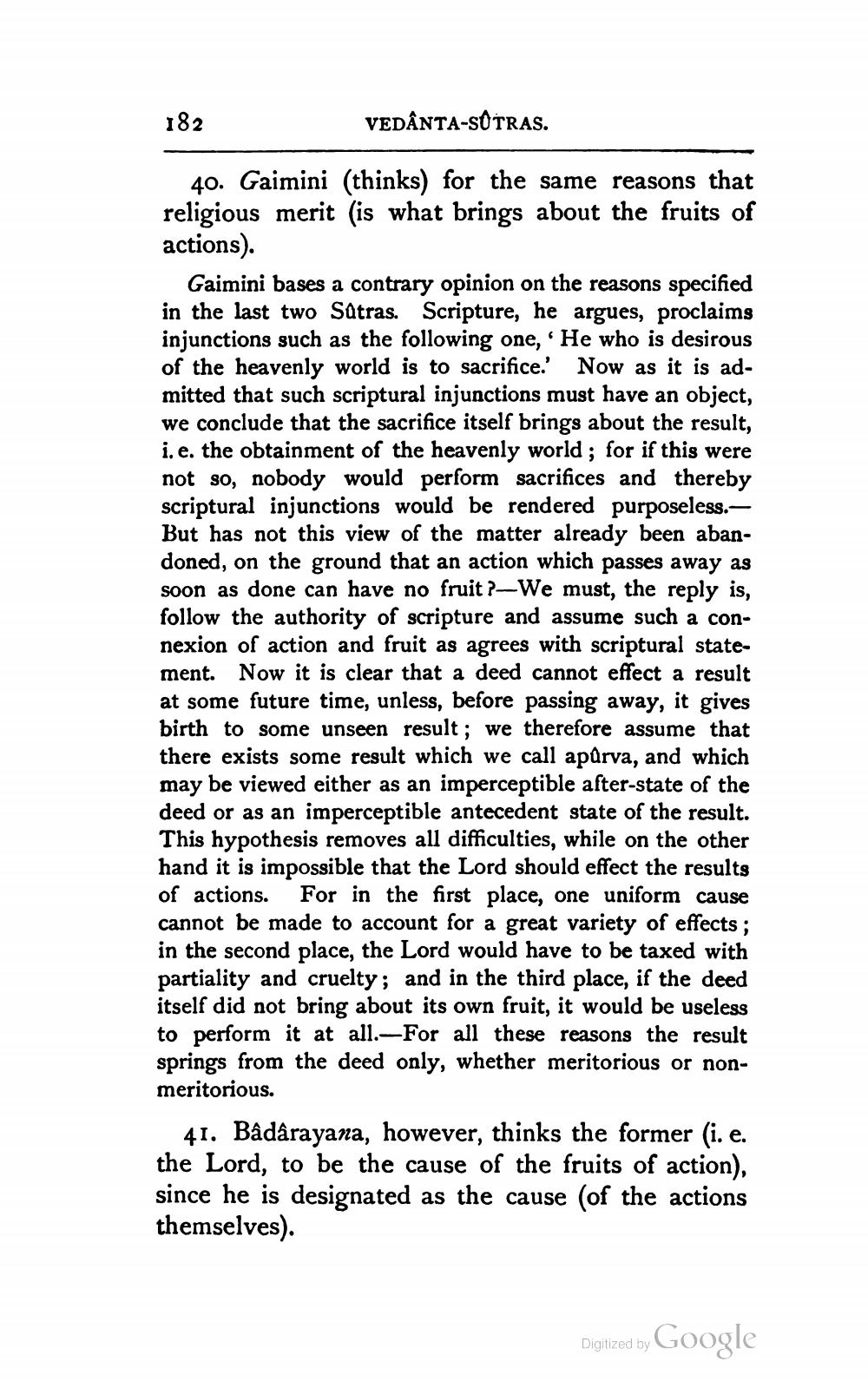________________
VEDANTA-SUTRAS.
40. Gaimini (thinks) for the same reasons that religious merit (is what brings about the fruits of actions).
182
Gaimini bases a contrary opinion on the reasons specified in the last two Sûtras. Scripture, he argues, proclaims injunctions such as the following one,' He who is desirous of the heavenly world is to sacrifice.' Now as it is admitted that such scriptural injunctions must have an object, we conclude that the sacrifice itself brings about the result, i. e. the obtainment of the heavenly world; for if this were not so, nobody would perform sacrifices and thereby scriptural injunctions would be rendered purposeless.But has not this view of the matter already been abandoned, on the ground that an action which passes away as soon as done can have no fruit ?-We must, the reply is, follow the authority of scripture and assume such a connexion of action and fruit as agrees with scriptural statement. Now it is clear that a deed cannot effect a result at some future time, unless, before passing away, it gives birth to some unseen result; we therefore assume that there exists some result which we call apûrva, and which may be viewed either as an imperceptible after-state of the deed or as an imperceptible antecedent state of the result. This hypothesis removes all difficulties, while on the other hand it is impossible that the Lord should effect the results of actions. For in the first place, one uniform cause cannot be made to account for a great variety of effects; in the second place, the Lord would have to be taxed with partiality and cruelty; and in the third place, if the deed itself did not bring about its own fruit, it would be useless to perform it at all. For all these reasons the result springs from the deed only, whether meritorious or nonmeritorious.
41. Bâdârayana, however, thinks the former (i. e. the Lord, to be the cause of the fruits of action), since he is designated as the cause (of the actions themselves).
Digitized by Google




